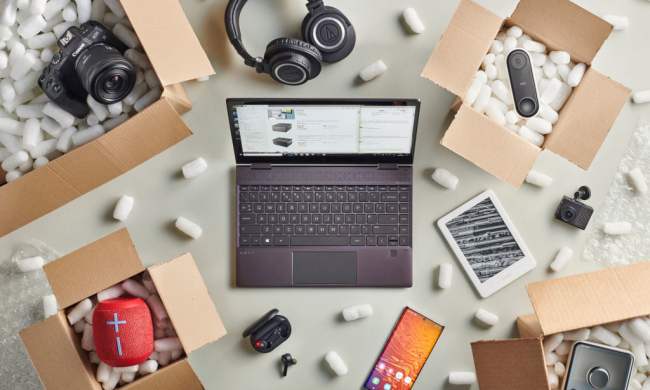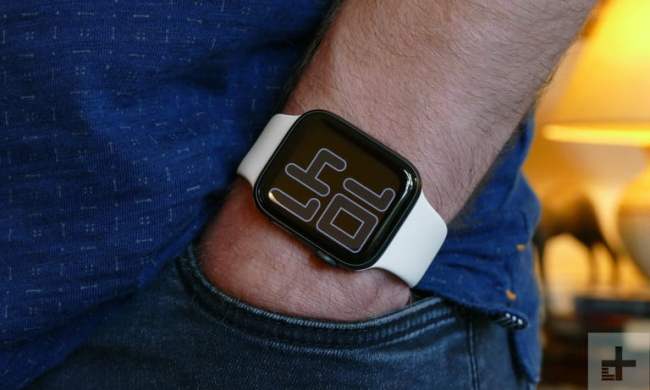The ongoing healthcare worries, the rising costs of living, political conflicts, and two years of isolation have increased stress levels worldwide. Reports by the World Health Organization (WHO) showed anxiety and depression around the world increased by 25% in the first year of the pandemic and Americans were found to be the most stressed out.
As the demand for therapeutic tools rises, several tech companies have launched wide ranges of wearables and apps to help with the growing mental health concerns. These tools can never replace therapy and medication, but they can complement your treatment. These wearables can also help you with everyday stressors that don't necessarily require seeing a mental health professional.
We've rounded up a broad mix of the best mental health wearables you can try. We've included everything from pricier devices supporting lots of features to simple, everyday-use trackers that get the job done on a budget.



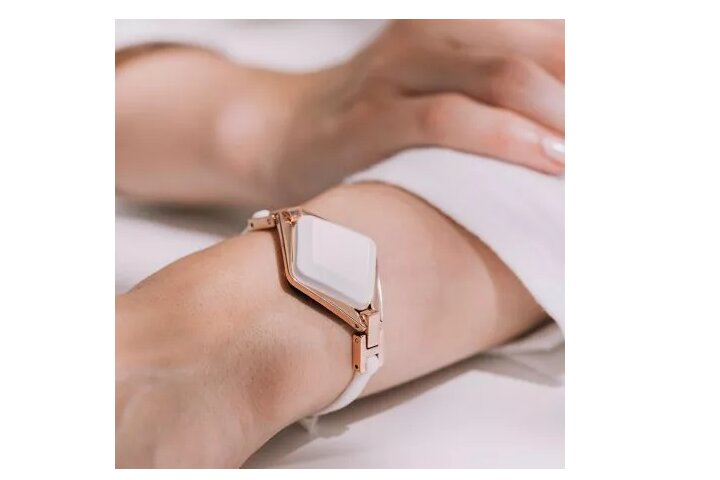

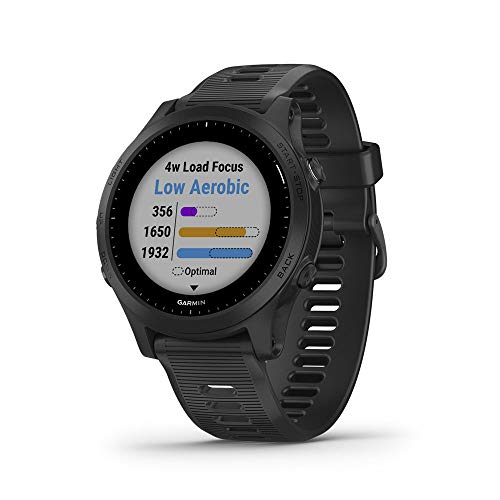
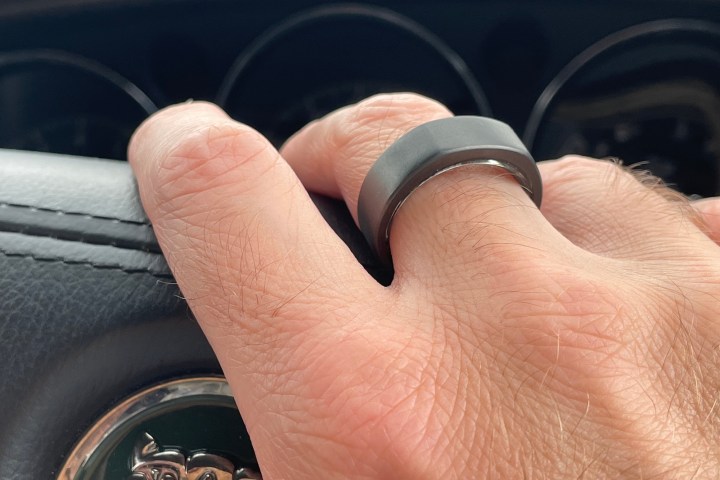
Oura Ring
- Light and comfortable to wear
- In-depth, informative sleep tracking
- Long battery life with easy charging
- Stylish, with a choice of finishes
- Well-designed app
- Limited activity tracking
- Expensive compared to other fitness wearables
If you hate going about your day with a clunky band around your wrist, you'll appreciate the Oura Ring, which is an activity tracker in the form of a subtle ring. It looks like your everyday accessory but tracks your sleep, workouts, inactive time, and everything else your typical fitness trackers measure.
What sets it apart is the readiness score, which focuses on how your body is coping with stressors and how ready you are for the day. The Oura Ring does a great job at measuring drops in your energy levels, temperature changes, and inefficient sleeping patterns, which can point toward being sick or not feeling your best mentally.
During the pandemic, researchers from multiple universities conducted joint research and found that wearables like Oura may predict symptoms of depression and anxiety. Of course, a wearable can't diagnose you with a mental health condition but if it can make you aware of the symptoms, you can use this data to seek professional help.
The biggest downside is that, like most activity trackers, the Oura Ring struggles to detect fidgeting and counts it as low-intensity activity, pushing your fitness measures off the charts when you're just laying in your bed playing pop-its.


Apollo Wearable
- Soothing vibrations
- Discreet use
- Various modes for different moods
- Quite expensive
- Doesn't measure anything
Apollo Neuroscience launched its pricey but effective wearable to offer touch therapy on the go. Backed by science, this nifty watch-like gadget sends soothing vibrations to your wrist or ankles, depending on where you choose to wear it and the mode of vibration you select.
You don't have to wear it all day long, just 15 minutes of vibrations focused on boosting energy levels, feeling focused, or calming down will do the trick. The app is silent and can be clipped onto your clothing so you can enjoy the vibrations discreetly, whether you're struggling to focus during a work meeting or feeling anxious before going onstage.
The downside is that the device doesn't really provide you with metrics. If you spend hours geeking out on the charts activity trackers provide, you'll be disappointed. There's no stress score and you can't objectively measure any improvements as you don't see any numbers.

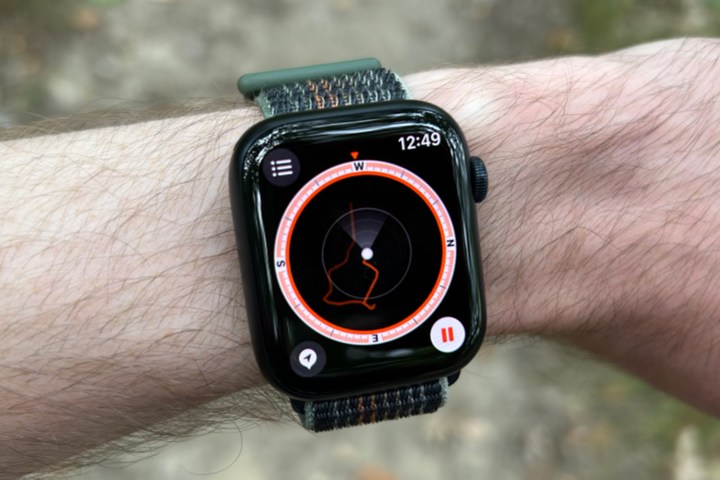
Apple Watch Series 8
- Sleek, comfortable design
- Display is big and gorgeous
- Excellent health features
- Fast charge speeds
- watchOS 9 is better than ever
- Car crash detection
- Temperature sensors are limited
- Almost identical to the Series 7
If you love the traditional feel and features of an activity tracker, getting an Apple Watch Series 8 is your best bet. It's easily one of the best activity trackers on the market, offering some of the best fitness and even mental health tracking options.
While it monitors typical metrics like heart rate, blood oxygen, and sleep stages, women will especially love the Apple Watch for its period predictions and ovulation tracking features. This data can help you understand the changes in your mood and notice and prepare for the changes in your body. Moreover, the Apple Watch pairs well with several mental health apps like Headspace, Calm, Moodnotes, AutoSleep, Sleep Cycle, Water Reminder, etc., so you can see all your mental health data and tools in one place.
However, the Apple Watch is designed to be an all-around activity tracker so it's not as focused on detecting stress and symptoms of anxiety or depression, nor does it offer targeted treatment options like the Apollo Wearable. But if you want something more subtle that people won't ask probing questions about, then the Apple Watch is a great choice.

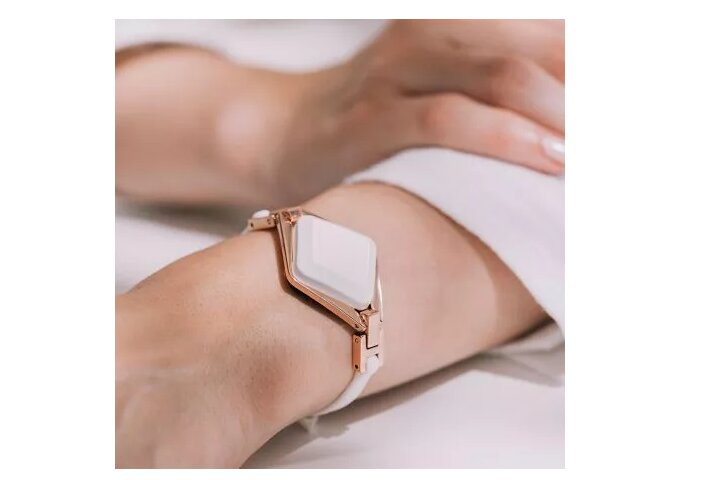
Bellabeat Ivy
- Tracks periods, ovulation, and emotional health
- Wellness score focuses on self-care
- Hydration reminders
- No display to view the metrics
- Need to buy a premium subscription for workouts
The Bellabeat Ivy is specially designed for women to track their physical and mental health securely. It focuses on the menstrual cycle and tracks periods, ovulation, and emotional health. It also tracks the body's stress response and gives you a readiness score with suggestions for improvement. This is similar to the Oura Ring which tells you when you're ready for intense activities and when it's better to lay low.
The Ivy also measures your fitness levels like a typical activity tracker, so you can keep an eye on how movement is affecting your moods. Buying a premium membership to their app also gives you access to new workouts and recipes.
One unique mental health feature is its wellness score, which focuses on self-care activities like drinking enough water, exercising, meditation, good sleep, and menstrual care. You can also set up hydration reminders for those days when you're too busy to stop and chug a glass.
The downside is that there's no display, so you always have to open up the app to view the metrics and control the tracker. Buying a separate premium subscription also adds to the Ivy's already hefty price tag.


Muse Headband
- Real-time neurofeedback
- Understand brain activity patterns
- More than 500 guided meditations
- Helps you fall and stay asleep
- Pay extra for the app subscription
- No tracking options beyond meditation and sleep
If you don't want to wear any accessories on your hands, consider this Muse headband that, as the name suggests, you can wear on your head to sense the electrical activity of the brain. The wearable, once paired with the Muse: Meditation & Sleep app, gives you real-time neurofeedback so you can notice, understand, and change your meditation patterns for the best results. You also get access to 500+ guided meditations so you can find something that best helps you.
Insomniacs, pay attention. This band can do more than just improve your meditation sessions. It can also send signals to your brain to help you fall asleep naturally, and it'll even lull you back into sleep if you wake up in the middle of the night. Data nerds will also enjoy the post-session reports that help you understand your performance and notice any improvements.
These features are ideal for people struggling with anxiety who want to feel grounded, focused, and connected to their bodies. But the downside is that you have to pay extra for the app subscription and the app doesn't offer much value to users who don't want to meditate or fix their sleep.

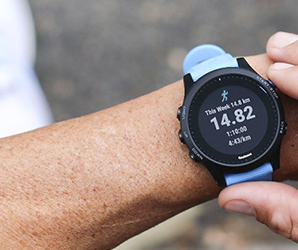
Garmin Smartwatch
- All-day stress tracking
- Prompts for guided meditation
- Excellent fitness tracking
- Pairs well with mental health apps
- Quite expensive
- Suited for active users
Another traditional activity tracker stepping up to offer mental health monitoring is the Garmin smartwatch, which measures stress levels based on heart rate variability. If the smartwatch detects a stress response in your body, you'll be prompted to do a guided meditation to help you calm down. You can also see personalized charts of your stress levels throughout the day, so you can understand what's affecting you and how to prepare for and minimize it. The device adapts to your baseline over time so the stress detection is more accurate the longer you wear it.
Because it's a Garmin tracker, you also get the best of fitness tracking, sleep monitoring, and respiration patterns data so you can understand how your body is responding to activities and stressors. You can also access in-app workouts as well as pair the smartwatch with other exercise, meditation, and mental health apps for added features.
However, this is one of the most expensive wearables and it's more focused on activity tracking so it's more suited to active users. Garmin does have a wide range of products though so you can choose something more suited to your budget.



